An unknown domain was encountered.

PLAN YOUR TRIP AT THE TOP OF YOUR AGENDA
Few places around the globe allow you to get away from it all in a beautiful landscape with a warm, familiar sense of belonging. But that is the essence of our islands. We’re a tapestry of tropical thrills with all the comforts of home, thanks to our British heritage and our location in the Western Caribbean. Nonstop service and connecting routes to our islands are provided by some of the best airlines in the business, led by our very own Cayman Airways . And Cayman Airways is also your course for flying from one of our shores to the next, as daily flights depart Grand Cayman for our two Sister Islands to the east.
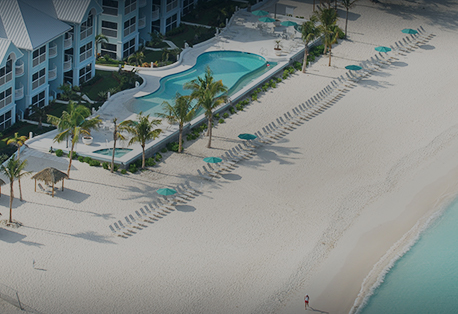
Food & Drink Locations
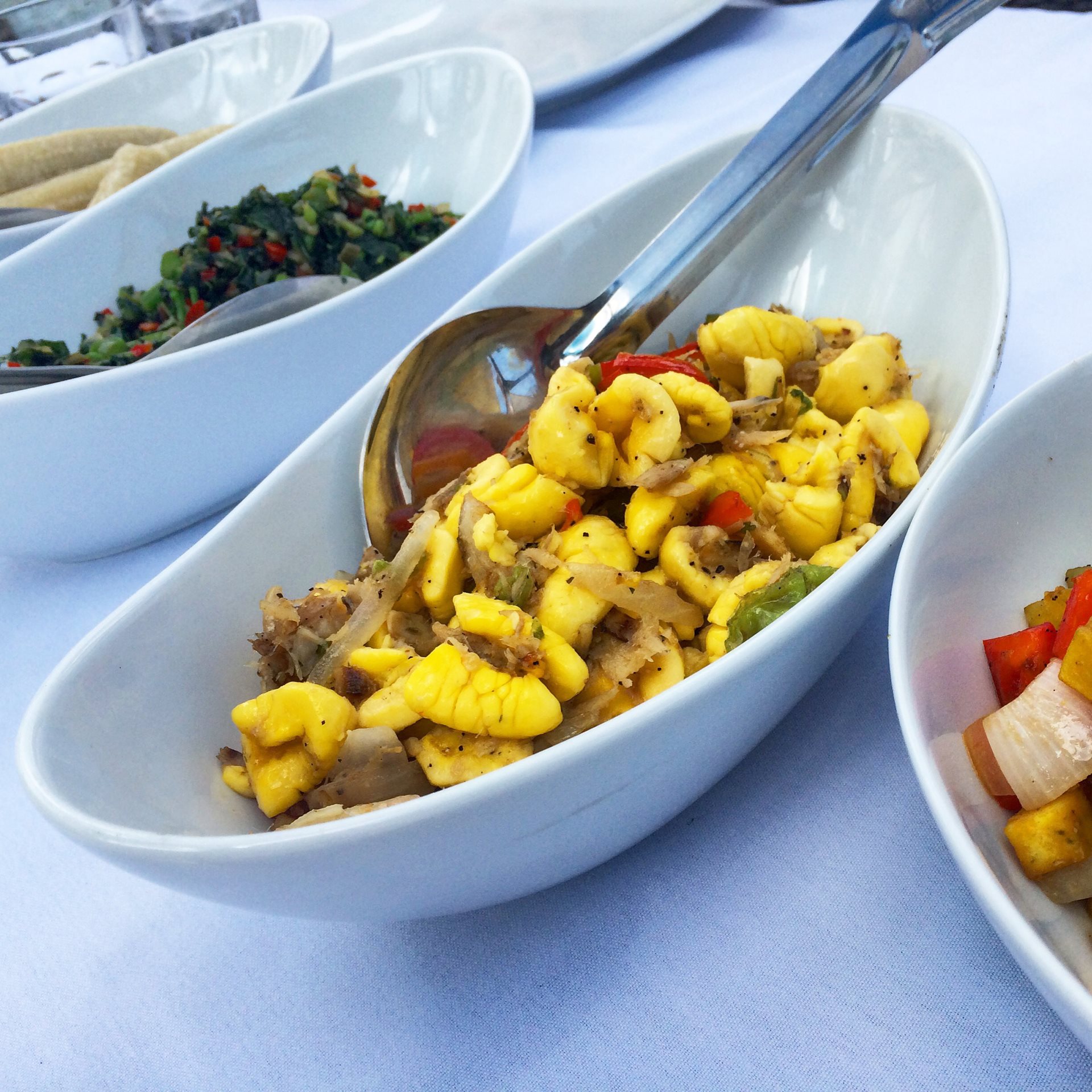
Food & Drink
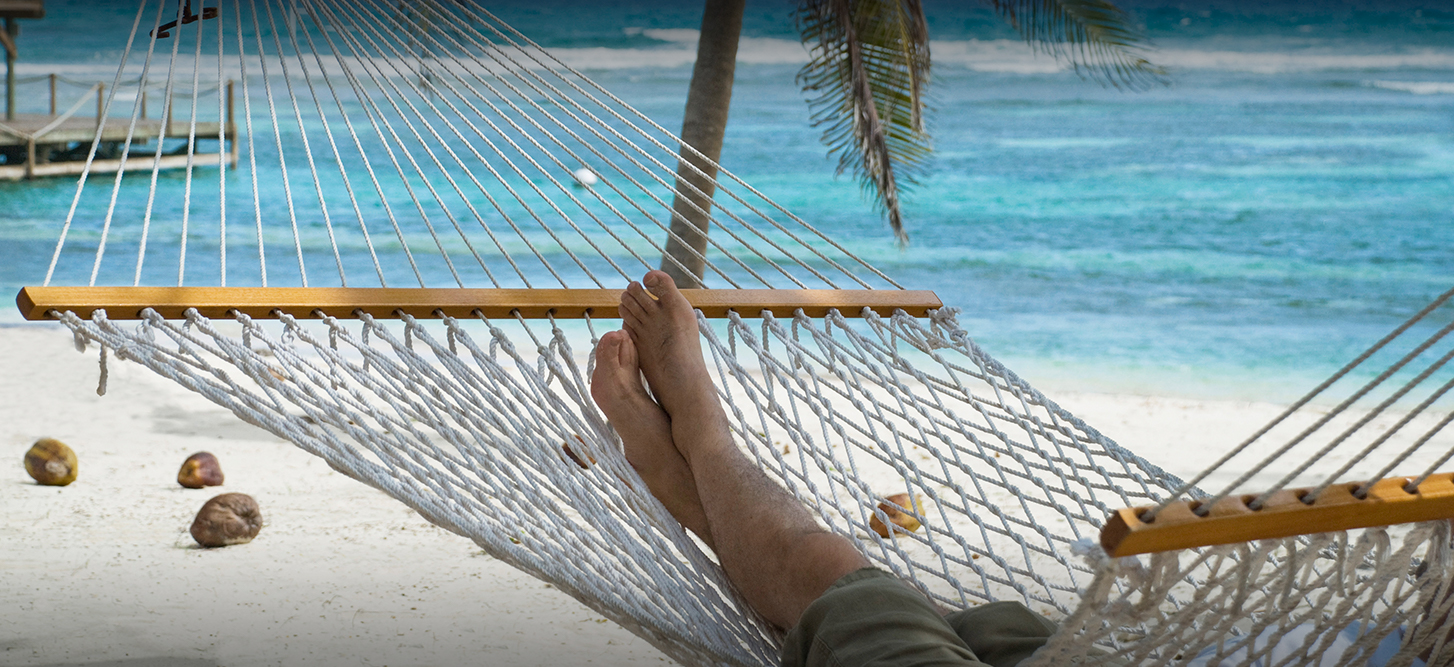
Special Offers
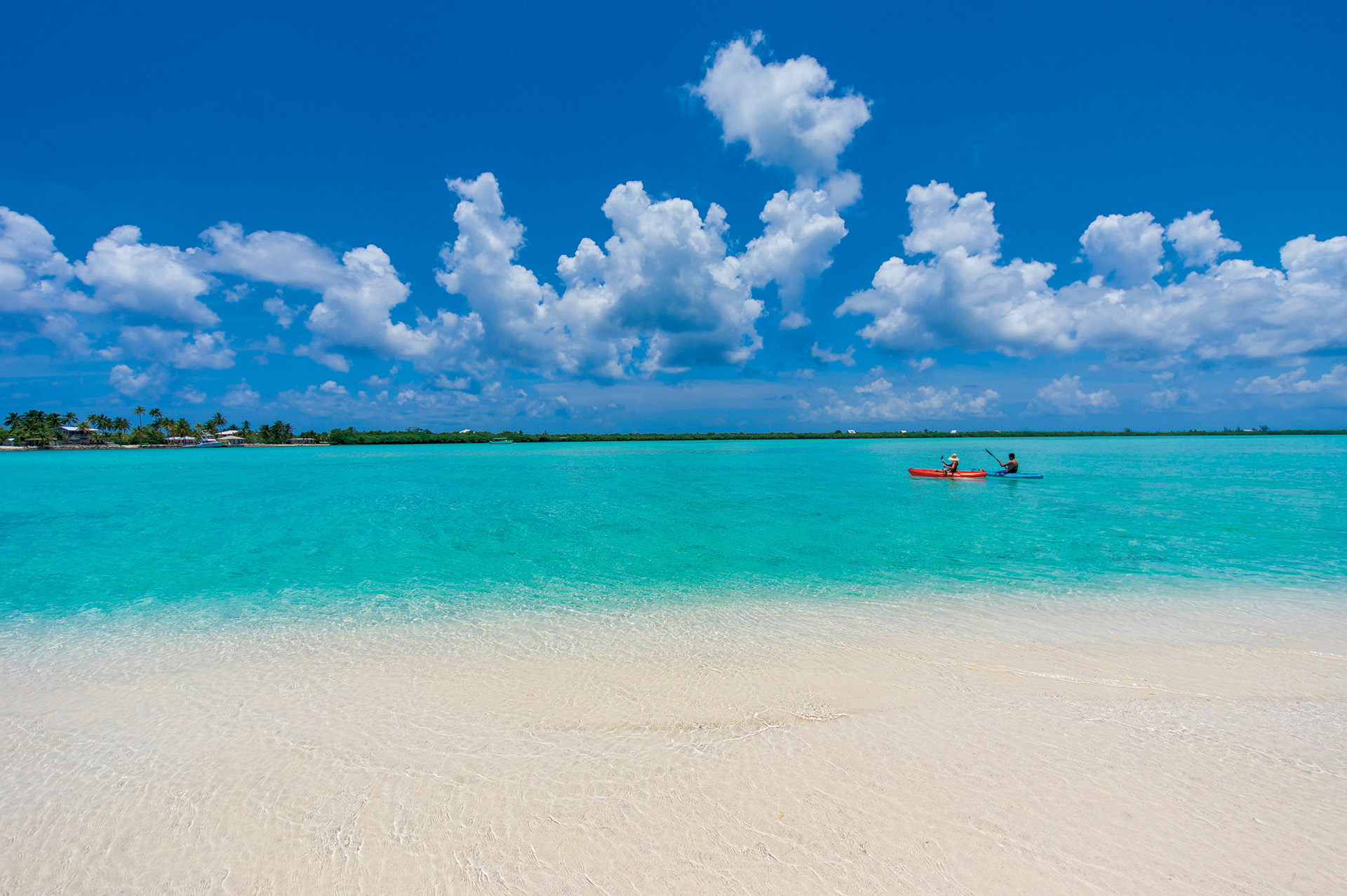
Travel Requirements

Getting Here

Our Local Businesses
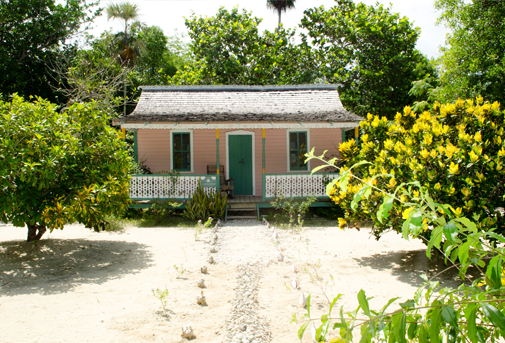
Health Service Providers
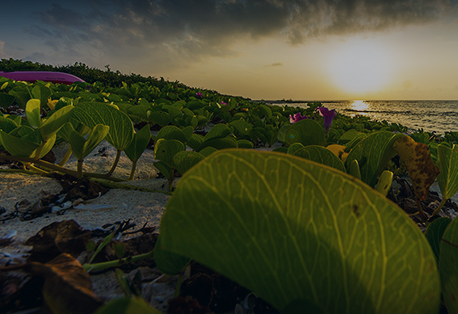
Contact a Cayman Travel Specialist
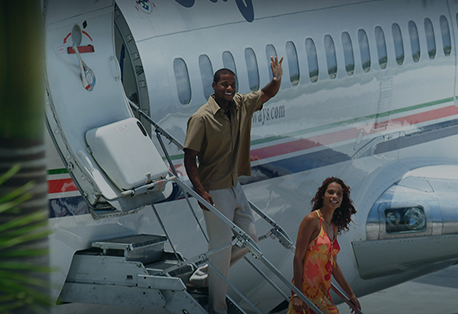
Travel Guides

Business Travel

To make your trip to the Cayman Islands as smooth as possible, please have the following items ready upon your arrival: • Identification (U.S. Passport/Proof Of Canadian Citizenship) • Immigration Card (Provided By Airline Staff) • Customs Declaration Card (Provided By Airline Staff)
- Skip to main content
- Skip to "About this site"
Language selection
Search travel.gc.ca.
Help us to improve our website. Take our survey !
COVID-19: travel health notice for all travellers
Cayman Islands travel advice
Latest updates: Editorial change
Last updated: June 7, 2024 11:35 ET
On this page
Safety and security, entry and exit requirements, laws and culture, natural disasters and climate, grand cayman - take normal security precautions.
Take normal security precautions in Grand Cayman
Back to top
The crime rate is very low. Petty crime, such as pickpocketing and purse snatching, occasionally occurs. Use your hotel safe to store your valuables, but be sure it is bolted to the wall or the floor.
- Ensure that your personal belongings, including your passport and other travel documents, are secure at all times
- Carry a photocopy of your passport’s identification page with you at all times
- Don’t bring valuables to the beach
- Don’t walk alone to deserted beaches or poorly lit areas after dark
Women's safety
Sexual assaults occur. Women travelling alone may also be subject to certain forms of harassment and verbal abuse.
If you are the victim of a sexual assault, you should report it immediately to the nearest Canadian consulate or embassy. We also strongly advise that you file a report with the local police.
Advice for women travellers
Spiked foods and drinks
Never leave food or drinks unattended or in the care of strangers. Be wary of accepting snacks, beverages, gum or cigarettes from new acquaintances. These items may contain drugs that could put you at risk of sexual assault and robbery.
Recreational activities and excursions
Ensure that the recreational activities you choose are covered by your travel insurance and that sporting and aquatic equipment is safe and in good condition. Ensure helmets and life jackets are available, if applicable. Avoid excursions that are not recommended by tour operators.
The port of Grand Cayman is a cruise-ship stop.
Advice for Cruise Travellers
Demonstrations
Demonstrations can occur. Even peaceful demonstrations can suddenly turn violent at any time. They may cause disruptions to services, to traffic and public transportation.
- Avoid areas where demonstrations and large gatherings are taking place
- Follow the instructions of local authorities
- Monitor local media for information on ongoing demonstration
Mass gatherings (large-scale events)
Road safety
Road conditions are poor in some areas.
Public transportation
Safe public minibuses run on the main roads.
Taxis and rental cars
Taxis, mopeds, scooters and rental cars are widely available.
We do not make assessments on the compliance of foreign domestic airlines with international safety standards.
Information about foreign domestic airlines
Every country or territory decides who can enter or exit through its borders. The Government of Canada cannot intervene on your behalf if you do not meet your destination’s entry or exit requirements.
We have obtained the information on this page from the British authorities. It can, however, change at any time.
Verify this information with the Foreign Representatives in Canada .
Entry requirements vary depending on the type of passport you use for travel.
Before you travel, check with your transportation company about passport requirements. Its rules on passport validity may be more stringent than the country’s entry rules.
Regular Canadian passport
Your passport must be valid beyond the date of expected departure from the Cayman Islands.
Passport for official travel
Different entry rules may apply.
Official travel
Passport with “X” gender identifier
While the Government of Canada issues passports with an “X” gender identifier, it cannot guarantee your entry or transit through other countries. You might face entry restrictions in countries that do not recognize the “X” gender identifier. Before you leave, check with the closest foreign representative for your destination.
Other travel documents
Different entry rules may apply when travelling with a temporary passport or an emergency travel document. Before you leave, check with the closest foreign representative for your destination.
Useful links
- Foreign Representatives in Canada
- Canadian passports
Tourist visa: not required for stays up to six months Work permit: required Student visa: required
Other entry requirements
A return ticket and proof of sufficient funds is required to visit the Cayman Islands.

Yellow fever
Learn about potential entry requirements related to yellow fever (vaccines section).
- Children and travel
Learn more about travelling with children .
Relevant Travel Health Notices
- Global Measles Notice - 13 March, 2024
- Zika virus: Advice for travellers - 31 August, 2023
- COVID-19 and International Travel - 13 March, 2024
This section contains information on possible health risks and restrictions regularly found or ongoing in the destination. Follow this advice to lower your risk of becoming ill while travelling. Not all risks are listed below.
Consult a health care professional or visit a travel health clinic preferably 6 weeks before you travel to get personalized health advice and recommendations.
Routine vaccines
Be sure that your routine vaccinations , as per your province or territory , are up-to-date before travelling, regardless of your destination.
Some of these vaccinations include measles-mumps-rubella (MMR), diphtheria, tetanus, pertussis, polio, varicella (chickenpox), influenza and others.
Pre-travel vaccines and medications
You may be at risk for preventable diseases while travelling in this destination. Talk to a travel health professional about which medications or vaccines may be right for you, based on your destination and itinerary.
Yellow fever is a disease caused by a flavivirus from the bite of an infected mosquito.
Travellers get vaccinated either because it is required to enter a country or because it is recommended for their protection.
- There is no risk of yellow fever in this country.
Country Entry Requirement*
- Proof of vaccination is not required to enter this country.
Recommendation
- Vaccination is not recommended.
* It is important to note that country entry requirements may not reflect your risk of yellow fever at your destination. It is recommended that you contact the nearest diplomatic or consular office of the destination(s) you will be visiting to verify any additional entry requirements.
About Yellow Fever
Yellow Fever Vaccination Centres in Canada
There is a risk of hepatitis A in this destination. It is a disease of the liver. People can get hepatitis A if they ingest contaminated food or water, eat foods prepared by an infectious person, or if they have close physical contact (such as oral-anal sex) with an infectious person, although casual contact among people does not spread the virus.
Practise safe food and water precautions and wash your hands often. Vaccination is recommended for all travellers to areas where hepatitis A is present.
Measles is a highly contagious viral disease. It can spread quickly from person to person by direct contact and through droplets in the air.
Anyone who is not protected against measles is at risk of being infected with it when travelling internationally.
Regardless of where you are going, talk to a health care professional before travelling to make sure you are fully protected against measles.
Hepatitis B is a risk in every destination. It is a viral liver disease that is easily transmitted from one person to another through exposure to blood and body fluids containing the hepatitis B virus. Travellers who may be exposed to blood or other bodily fluids (e.g., through sexual contact, medical treatment, sharing needles, tattooing, acupuncture or occupational exposure) are at higher risk of getting hepatitis B.
Hepatitis B vaccination is recommended for all travellers. Prevent hepatitis B infection by practicing safe sex, only using new and sterile drug equipment, and only getting tattoos and piercings in settings that follow public health regulations and standards.
Coronavirus disease (COVID-19) is an infectious viral disease. It can spread from person to person by direct contact and through droplets in the air.
It is recommended that all eligible travellers complete a COVID-19 vaccine series along with any additional recommended doses in Canada before travelling. Evidence shows that vaccines are very effective at preventing severe illness, hospitalization and death from COVID-19. While vaccination provides better protection against serious illness, you may still be at risk of infection from the virus that causes COVID-19. Anyone who has not completed a vaccine series is at increased risk of being infected with the virus that causes COVID-19 and is at greater risk for severe disease when travelling internationally.
Before travelling, verify your destination’s COVID-19 vaccination entry/exit requirements. Regardless of where you are going, talk to a health care professional before travelling to make sure you are adequately protected against COVID-19.
The best way to protect yourself from seasonal influenza (flu) is to get vaccinated every year. Get the flu shot at least 2 weeks before travelling.
The flu occurs worldwide.
- In the Northern Hemisphere, the flu season usually runs from November to April.
- In the Southern Hemisphere, the flu season usually runs between April and October.
- In the tropics, there is flu activity year round.
The flu vaccine available in one hemisphere may only offer partial protection against the flu in the other hemisphere.
The flu virus spreads from person to person when they cough or sneeze or by touching objects and surfaces that have been contaminated with the virus. Clean your hands often and wear a mask if you have a fever or respiratory symptoms.
In this destination, rabies may be present in some wildlife species, including bats. Rabies is a deadly disease that spreads to humans primarily through bites or scratches from an infected animal.
If you are bitten or scratched by an animal while travelling, immediately wash the wound with soap and clean water and see a health care professional.
Before travel, discuss rabies vaccination with a health care professional. It may be recommended for travellers who will be working directly with wildlife.
Safe food and water precautions
Many illnesses can be caused by eating food or drinking beverages contaminated by bacteria, parasites, toxins, or viruses, or by swimming or bathing in contaminated water.
- Learn more about food and water precautions to take to avoid getting sick by visiting our eat and drink safely abroad page. Remember: Boil it, cook it, peel it, or leave it!
- Avoid getting water into your eyes, mouth or nose when swimming or participating in activities in freshwater (streams, canals, lakes), particularly after flooding or heavy rain. Water may look clean but could still be polluted or contaminated.
- Avoid inhaling or swallowing water while bathing, showering, or swimming in pools or hot tubs.
Typhoid is a bacterial infection spread by contaminated food or water. Risk is higher among children, travellers going to rural areas, travellers visiting friends and relatives or those travelling for a long period of time.
Travellers visiting regions with a risk of typhoid, especially those exposed to places with poor sanitation, should speak to a health care professional about vaccination.
Insect bite prevention
Many diseases are spread by the bites of infected insects such as mosquitoes, ticks, fleas or flies. When travelling to areas where infected insects may be present:
- Use insect repellent (bug spray) on exposed skin
- Cover up with light-coloured, loose clothes made of tightly woven materials such as nylon or polyester
- Minimize exposure to insects
- Use mosquito netting when sleeping outdoors or in buildings that are not fully enclosed
To learn more about how you can reduce your risk of infection and disease caused by bites, both at home and abroad, visit our insect bite prevention page.
Find out what types of insects are present where you’re travelling, when they’re most active, and the symptoms of the diseases they spread.
There is a risk of chikungunya in this country. The risk may vary between regions of a country. Chikungunya is a virus spread through the bite of an infected mosquito. Chikungunya can cause a viral disease that typically causes fever and pain in the joints. In some cases, the joint pain can be severe and last for months or years.
Protect yourself from mosquito bites at all times. There is no vaccine available for chikungunya.
- In this country, dengue is a risk to travellers. It is a viral disease spread to humans by mosquito bites.
- Dengue can cause flu-like symptoms. In some cases, it can lead to severe dengue, which can be fatal.
- The level of risk of dengue changes seasonally, and varies from year to year. The level of risk also varies between regions in a country and can depend on the elevation in the region.
- Mosquitoes carrying dengue typically bite during the daytime, particularly around sunrise and sunset.
- Protect yourself from mosquito bites . There is no vaccine or medication that protects against dengue.
Zika virus is a risk in this country.
Zika virus is primarily spread through the bite of an infected mosquito. It can also be sexually transmitted. Zika virus can cause serious birth defects.
During your trip:
- Prevent mosquito bites at all times.
- Use condoms correctly or avoid sexual contact, particularly if you are pregnant.
If you are pregnant or planning a pregnancy, you should discuss the potential risks of travelling to this destination with your health care provider. You may choose to avoid or postpone travel.
For more information, see Zika virus: Pregnant or planning a pregnancy.
Animal precautions
Some infections, such as rabies and influenza, can be shared between humans and animals. Certain types of activities may increase your chance of contact with animals, such as travelling in rural or forested areas, camping, hiking, and visiting wet markets (places where live animals are slaughtered and sold) or caves.
Travellers are cautioned to avoid contact with animals, including dogs, livestock (pigs, cows), monkeys, snakes, rodents, birds, and bats, and to avoid eating undercooked wild game.
Closely supervise children, as they are more likely to come in contact with animals.
Person-to-person infections
Stay home if you’re sick and practise proper cough and sneeze etiquette , which includes coughing or sneezing into a tissue or the bend of your arm, not your hand. Reduce your risk of colds, the flu and other illnesses by:
- washing your hands often
- avoiding or limiting the amount of time spent in closed spaces, crowded places, or at large-scale events (concerts, sporting events, rallies)
- avoiding close physical contact with people who may be showing symptoms of illness
Sexually transmitted infections (STIs) , HIV , and mpox are spread through blood and bodily fluids; use condoms, practise safe sex, and limit your number of sexual partners. Check with your local public health authority pre-travel to determine your eligibility for mpox vaccine.
HIV (Human Immunodeficiency Virus) is a virus that attacks and impairs the immune system, resulting in a chronic, progressive illness known as AIDS (Acquired Immunodeficiency Syndrome).
High risk activities include anything which puts you in contact with blood or body fluids, such as unprotected sex and exposure to unsterilized needles for medications or other substances (for example, steroids and drugs), tattooing, body-piercing or acupuncture.
Medical services and facilities
Medical facilities and services are generally good. There are several public and private hospitals and clinics on the islands. The main Hospitals are in Grand Cayman, the sister island Cayman Brac has a smaller hospital, and Little Cayman has a medical clinic. Therefore, the medical services are more limited on the Sister Islands. The Cayman Islands provide a wide range of ultra-modern medical services. Treatment is expensive, and cash payment may be required upfront. Make sure you have accessible funds to cover the cost of any medical treatment and medical evacuation if required. Severe cases requiring critical care may require medical evacuation to the United States for treatment. Be aware that medical evacuations can be extremely expensive.
Make sure you get travel insurance that includes coverage for medical evacuation and hospital stays.
Travel health and safety
Medical tourism
Canadian citizens have died or had serious health complications following cosmetic or other elective surgeries abroad.
Before leaving for medical travel:
- make sure you have done your research
- use reputable health-care providers only
Receiving medical care outside Canada
Keep in Mind...
The decision to travel is the sole responsibility of the traveller. The traveller is also responsible for his or her own personal safety.
Be prepared. Do not expect medical services to be the same as in Canada. Pack a travel health kit , especially if you will be travelling away from major city centres.
You must abide by local laws.
Learn about what you should do and how we can help if you are arrested or detained abroad .
The Cayman Islands is a British Overseas Territory. The Cayman Islands is a separate legal jurisdiction from the United Kingdom and has its own laws.
Canada and the United Kingdom are signatories to the Convention on the Transfer of Sentenced Persons. This enables a Canadian imprisoned in the United Kingdom to request a transfer to a Canadian prison to complete a sentence. The transfer requires the agreement of both Canadian and British authorities. This process can take a long time and there is no guarantee that the transfer will be approved by either or both sides.
Penalties for possession, use or trafficking of illegal drugs are strict. Convicted offenders can expect jail sentences and heavy fines. Do not carry parcels, gifts or luggage for other people across a border or through customs under any circumstances.
Drugs, alcohol and travel
International Child Abduction
The Hague Convention on the Civil Aspects of International Child Abduction is an international treaty. It can help parents with the return of children who have been removed to or retained in certain countries in violation of custody rights. The convention applies between Canada and the United Kingdom.
If your child was wrongfully taken to, or is being held in Cayman Islands, and if the applicable conditions are met, you may apply for the return of your child to the Caymanian court.
If you are in this situation:
- act as quickly as you can
- contact the Central Authority for your province or territory of residence for information on starting an application under The Hague Convention
- consult a lawyer in Canada and in Cayman Islands to explore all the legal options for the return of your child
- report the situation to the nearest Canadian government office abroad or to the Vulnerable Children's Consular Unit at Global Affairs Canada by calling the Emergency Watch and Response Centre
If your child was removed from a country other than Canada, consult a lawyer to determine if The Hague Convention applies.
Be aware that Canadian consular officials cannot interfere in private legal matters or in another country's judicial affairs.
- List of Canadian Central Authorities for the Hague Convention
- International Child Abductions: A guide for affected parents
- The Hague Convention – Hague Conference on Private International Law
- Canadian embassies and consulates by destination
- Request emergency assistance
Traffic drives on the left.
A visitor’s driving permit is required to drive in the Cayman Islands. You can obtain a visitor’s driving permit from a car rental agency or from an office of the Department of Vehicle and Drivers’ Licensing. You will need to present a valid Canadian passport, the immigration card that you received upon entry to the Cayman Islands and a valid Canadian driver’s licence. There is an administration fee of CI$16.
Visitor's driving permit - Department of Vehicle and Drivers’ Licensing
Imports and exports
Local customs authorities may enforce strict regulations concerning the temporary import or export of items such as firearms, spear guns, medications, agricultural products, animals and animal products (including sea turtle products). Note that anything delivering a projectile is considered a firearm. If you travel with such items, you may be required to obtain special permits prior to arrival. Contact the British High Commission in Ottawa for specific information regarding customs requirements.
If you are planning to marry in the Cayman Islands, ensure that you meet all requirements and have all necessary documents before leaving Canada.
Marriage outside Canada
The currency is the Cayman Islands dollar (KYD; CI$). Credit cards are accepted by most hotels and restaurants.
Investments
If you are interested in purchasing property or making other investments in the Cayman Islands, seek legal advice from appropriate professionals in Canada and in the Cayman Islands before making commitments. Disputes arising from such activities could be prolonged and costly to resolve.
Hurricane season
Hurricanes usually occur from mid-May to the end of November. During this period, even small tropical storms can quickly develop into major hurricanes.
These severe storms can put you at risk and hamper the provision of essential services. You could face serious safety risks during a hurricane.
If you decide to travel to a coastal area during the hurricane season:
- be prepared to change your travel plans on short notice, including cutting short or cancelling your trip
- stay informed of the latest regional weather forecasts
- carry emergency contact information for your airline or tour operator
- follow the advice and instructions of local authorities
- Tornadoes, cyclones, hurricanes, typhoons and monsoons
- Large-scale emergencies abroad
- Active storm tracking and hurricane watches and warnings – U.S. National Hurricane Center
Earthquakes
The Cayman Islands are located in an active seismic area. Earthquakes occur infrequently and most seismic events pass unnoticed. If a natural disaster occurs, follow the instructions of the local authorities.
Local services
Dial 911 for emergency assistance.
Consular assistance
There is no resident Canadian government office in the Cayman Islands. You can obtain consular assistance and further consular information from the High Commission of Canada in Jamaica, in Kingston.
Bahamas, Cayman Islands, Turks and Caicos Islands
For emergency consular assistance, call the High Commission of Canada in Jamaica, in Kingston, and follow the instructions. At any time, you may also contact the Emergency Watch and Response Centre in Ottawa.
The decision to travel is your choice and you are responsible for your personal safety abroad. We take the safety and security of Canadians abroad very seriously and provide credible and timely information in our Travel Advice to enable you to make well-informed decisions regarding your travel abroad.
The content on this page is provided for information only. While we make every effort to give you correct information, it is provided on an "as is" basis without warranty of any kind, expressed or implied. The Government of Canada does not assume responsibility and will not be liable for any damages in connection to the information provided.
If you need consular assistance while abroad, we will make every effort to help you. However, there may be constraints that will limit the ability of the Government of Canada to provide services.
Learn more about consular services .
Risk Levels
take normal security precautions.
Take similar precautions to those you would take in Canada.
Exercise a high degree of caution
There are certain safety and security concerns or the situation could change quickly. Be very cautious at all times, monitor local media and follow the instructions of local authorities.
IMPORTANT: The two levels below are official Government of Canada Travel Advisories and are issued when the safety and security of Canadians travelling or living in the country or region may be at risk.
Avoid non-essential travel
Your safety and security could be at risk. You should think about your need to travel to this country, territory or region based on family or business requirements, knowledge of or familiarity with the region, and other factors. If you are already there, think about whether you really need to be there. If you do not need to be there, you should think about leaving.
Avoid all travel
You should not travel to this country, territory or region. Your personal safety and security are at great risk. If you are already there, you should think about leaving if it is safe to do so.
Security Alert May 17, 2024
Worldwide caution, update may 10, 2024, information for u.s. citizens in the middle east.
- Travel Advisories |
- Contact Us |
- MyTravelGov |
Find U.S. Embassies & Consulates
Travel.state.gov, congressional liaison, special issuance agency, u.s. passports, international travel, intercountry adoption, international parental child abduction, records and authentications, popular links, travel advisories, mytravelgov, stay connected, legal resources, legal information, info for u.s. law enforcement, replace or certify documents.
Share this page:
Cayman Islands Travel Advisory
Travel advisory july 17, 2023, cayman islands - level 1: exercise normal precautions.
Reissued with obsolete COVID-19 page links removed.
Exercise normal precautions in the Cayman Islands.
Read the country information page for additional information on travel to the Cayman
If you decide to travel to the Cayman Islands:
- Enroll in the Smart Traveler Enrollment Program (STEP) to receive Alerts and make it easier to locate you in an emergency.
- Follow the Department of State on Facebook and Twitter .
- Review the Country Security Report for the Cayman Islands
- Prepare a contingency plan for emergency situations. Review the Traveler’s Checklist .
- Visit the CDC page for the latest Travel Health Information related to your travel.
Travel Advisory Levels
Assistance for u.s. citizens, cayman islands map, search for travel advisories, external link.
You are about to leave travel.state.gov for an external website that is not maintained by the U.S. Department of State.
Links to external websites are provided as a convenience and should not be construed as an endorsement by the U.S. Department of State of the views or products contained therein. If you wish to remain on travel.state.gov, click the "cancel" message.
You are about to visit:
Hurricane Watch
A Hurricane Watch has been issued for the Cayman Islands
Updated on 23 April 2024
In item date 25 April 2022
March 20, 2024
Credit Card Expenses-Chief Officer (January 2024)
December 12, 2023
MOTP Credit Card Expense Report-Chief Officer (Aug 2023)
MOTP Credit Card Expense Report-Chief Officer (Oct 2023)
September 20, 2023
Port Authority Annual Report 2022
Ministry of Tourism and Transport Annual Report 2022
July 21, 2023
MOTP Credit Card Expense Report - Chief Officer (June 2023)
MOTP Credit Card Expense Report - Chief Officer (May 2023)
April 26, 2023
MOTP Credit Card Expense Report - Chief Officer (Mar 2023)
March 10, 2023
MOTT Credit Card Expenses - Chief Officer (Jan 2023)
MOTT Credit Card Expenses - Chief Officer (Oct 2022)
February 20, 2024
MOTP Credit Card Expenses - Chief Officer (December 2023)
MOTP Credit Card Expense Report-Chief Officer (Sept 2023)
MOTP Credit Card Expense Report-Chief Officer (Nov 2023)
Cayman Airways Annual Report 2022
TAB Annual Report 2022
MOTP Credit Card Expense Report - Chief Officer (April 2023)
MOTT Credit Card Expenses - Chief Officer (Jan 2022)
MOTT Credit Card Expenses - Chief Officer (July 2022)
MOTT Credit Card Expenses - Chief Officer (May 2022)
MOTT Credit Card Expenses - Chief Officer (Dec 2022)
- = numPages()}"> = numPages() ? -1 : 0)}" tabindex="0">Next

Terms & Conditions Privacy Freedom of Information

IMAGES
COMMENTS
Welcome to the official tourism site for the Cayman Islands, an interactive and informative site of our three compelling islands: Grand Cayman, Little Cayman, and Cayman Brac.
Director of Tourism, Department of Tourism (345) 949-0623 [email protected]; PUBLICATIONS OUR LAWS & REGULATIONS OUR POLICIES & PROCEDURES. March 20, 2024 ... As the national flag carrier for the Cayman Islands, Cayman Airways operates non-stop Boeing 737 jet service between Grand Cayman and the following major US cities: Miami and ...
The Cayman Islands enjoys a vibrant art scene with over 250 practicing artists, seven commercial galleries, a National Gallery with a permanent art collection and up to ten rotating contemporary art exhibitions per annum, several publicly accessible artist's studios, and many more exhibition spaces hosted in restaurants and cafes across the ...
HEAD OFFICE GRAND CAYMAN P.O. Box 134 Grand Cayman KY1-9000 Cayman Islands Tel: (345) 949-0623 Fax: (345) 949-4053
Visit or call the Cayman Islands Department of Tourism offices in Miami at (305) 599-9033, New York (212) 889-9009, Houston (713) 461-1317 or Chicago (630) 705-0650 for the most current visa information. Exit Information: There is a departure tax for travelers age 12 and older, which is included in airfare.
A Hurricane Watch has been issued for the Cayman Islands. Hurricane Watch. Learn more. Updated on 23 April 2024. 08:56 AM. false watch. Directory. All Entities. Office of the Governor. ... Cayman Islands Department of Tourism (CIDOT) Tel: (345) 949-0623; Cayman Islands Gazette; Tel: (345) 949-7900; Central Procurement Office; Tel: (345) 244 ...
The Road to Tourism Recovery. In December 2019 the Cayman Islands recorded its highest tourism arrivals in history, crossing the coveted 500,000 threshold in stayover visitor arrivals. The industry was booming, workers were earning steady income and 5% tourism growth was forecast for 2020. Simply put 150 days ago we were on our way to the best ...
Apply for a visitor visa to the Cayman Islands online. Fill out the form, pay the fee and get your visa approval in a few steps.
Cayman Islands Department of Tourism | 5,821 followers on LinkedIn. The Cayman Islands - home of the Caribbean's three most enchanting islands. Discover how to Dream In Cayman. | The Cayman Islands is the premier warm-weather destination of choice for discerning travellers, honeymooners and families who value togetherness in an idyllic, environmentally responsible location with impeccably ...
Cayman Islands Department of Tourism Jul 12, 2021, 12:17 ET. Share this article. Share to X. Share this article. Share to X. Five-Phase Plan for Safe Return of Tourism Aims to See Destination ...
Phase 4, which begins Oct. 14, will see the borders open for all securely verified, fully vaccinated adult travelers. Unvaccinated visitors must apply for entry via the Travel Cayman Portal and ...
To make your trip to the Cayman Islands as smooth as possible, please have the following items ready upon your arrival: • Identification (U.S. Passport/Proof Of Canadian Citizenship) • Immigration Card (Provided By Airline Staff) • Customs Declaration Card (Provided By Airline Staff) Travel Requirements. Plan your trip or vacation to the ...
Fresh from inking two US marketing contracts, together valued at $12.3 million, the Department of Tourism is seeking to hire a public relations firm to develop a strategy for the UK and European ...
You can obtain a visitor's driving permit from a car rental agency or from an office of the Department of Vehicle and Drivers' Licensing. You will need to present a valid Canadian passport, the immigration card that you received upon entry to the Cayman Islands and a valid Canadian driver's licence. There is an administration fee of CI$16.
If you decide to travel to the Cayman Islands: Enroll in the Smart Traveler Enrollment Program (STEP) to receive Alerts and make it easier to locate you in an emergency. Follow the Department of State on Facebook and Twitter. Review the Country Security Report for the Cayman Islands; Prepare a contingency plan for emergency situations.
The Cayman Islands welcomed 323,038 stayover visitors and 930,621 cruise visitors between January and September 2023. This represented 83.6% of 2019's visitation numbers far surpassing the destination's target of 70% of 2019's visitation. Standout months included January with 89% of 2019's visitation and September with 88%.
Last updated: 3:40 PM ET, Wed February 22, 2023. The Cayman Islands Department of Tourism (CIDOT) named three officials to new strategic positions dedicated to tourism industry growth in the territory, said Rosa Harris, the agency's director. The new CIDOT officials, Marzeta Bodden, Lauren Brook and Tristaca Ebanks, are "experienced and ...
With the assortment of these three islands, the Cayman Islands are suitable for any type of person. Destination Guide. Contact Information. P.O. Box 134. Grand Cayman KY1-9000. Cayman Islands. Tel: (345) 949-0623.
Cayman Airways says unprofitable routes necessary for tourism. Reshma Ragoonath - June 10, 2024. Even though only seven of Cayman Airways's 69 routes made a net profit in five years tourism ...
A Hurricane Watch has been issued for the Cayman Islands. Hurricane Watch. Learn more. Updated on 23 April 2024. 03:56 PM. false watch ` PUBLICATIONS. March 20, 2024. Report. ... Ministry of Tourism and Transport Annual Report 2022. July 21, 2023. Report. MOTP Credit Card Expense Report - Chief Officer (June 2023) July 21, 2023.
GRAND CAYMAN, Cayman Islands, Oct. 9, 2019 /PRNewswire/ -- Following a competitive procurement process, the Cayman Islands Department of Tourism (CIDOT) today announces Kelly Scott Madison (KSM ...
June 12, 2024. Tourism's status as a pillar of Cayman's economy has been up for debate in recent times. It's an industry that comes with the potential for negative impacts, writes guest ...
McTaggart said that since his first days in office, the Progressives Opposition had urged Bryan to revise and update Cayman's strategic tourism plan to better guide its future growth. "The industry has changed significantly, and evolving consumer demands, especially in the post-pandemic cruise sector, require a 're-imagining' of our ...